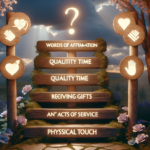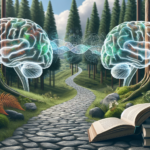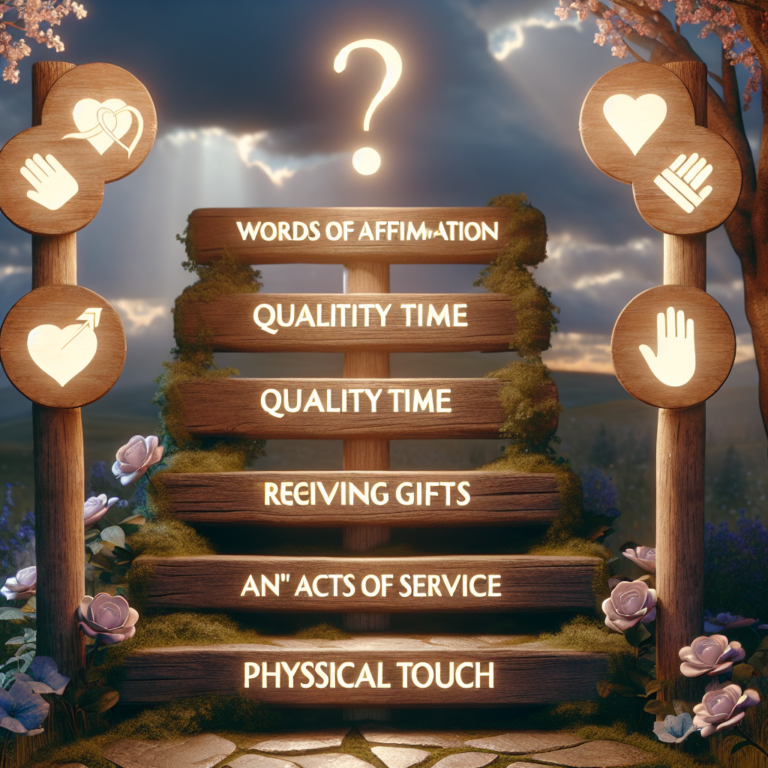
Introduction
Imagine standing in a room filled with people—laughter, joy, and the thrill of connection surround you. Yet, despite the cheerful atmosphere, you feel isolated, craving validation or affection from a single individual. This poignant scenario reflects the emotional dependency that can ensnare people in relationships, leading to anxiety, insecurity, and an unbalanced emotional ecosystem. If you identify with this sentiment, it’s time to explore how to break free from these constraints. In this article, Breaking Free: Understanding and Overcoming Emotional Dependency in Relationships, we will examine the intricacies of emotional dependency, its effects, and strategies to liberate yourself and foster healthier relationships.
Understanding Emotional Dependency
What is Emotional Dependency?
Emotional dependency refers to an unhealthy reliance on others for emotional support and validation, significantly impacting one’s sense of self-worth. Often stemming from past experiences—such as neglect, trauma, or inconsistent love—this dependency compels individuals to seek constant reassurance and approval from their partner. It can strangle the relationship, creating a cycle of behavior that leads to feelings of inadequacy and anxiety.
Recognizing the Signs of Emotional Dependency
To begin Breaking Free: Understanding and Overcoming Emotional Dependency in Relationships, you must first recognize the signs of emotional dependency. Here are some common indicators:
| Sign | Description |
|---|---|
| Constant Need for Validation | Feeling incomplete without praise or reassurance from your partner. |
| Fear of Abandonment | Experiencing significant anxiety or fear at the thought of being left alone. |
| Low Self-Esteem | Struggling with self-worth and relying heavily on your partner’s approval. |
| Difficulty Making Decisions | Finding it hard to make choices without consulting your partner. |
| Overcommitting | Sacrificing personal needs, interests, and relationships for the sake of your partner. |
| Jealousy | Feeling threatened by your partner’s other friendships or interests. |
Recognizing these signs is a critical step toward breaking the cycle and creating a more balanced emotional landscape.
The Underlying Causes of Emotional Dependency
Childhood Experiences
Many people develop emotional dependency due to their childhood experiences. A lack of nurturing, inconsistent parenting, or traumatic events can lead individuals to feel unworthy of love and attention. This early conditioning tends to manifest in adult relationships, resulting in a compulsive need for validation and support from others.
Past Relationships
Previous relationship experiences can also contribute significantly to emotional dependency. An emotionally abusive or unsupportive partner can leave deep scars, creating a fear of being alone and an eagerness to hold onto any semblance of affection.
Personality Traits
Certain personality traits, such as high sensitivity or low self-esteem, can predispose individuals to emotional dependency. Those who are naturally more empathetic may struggle to establish personal boundaries, allowing their partner’s emotions to dictate their own.
Case Studies
Case Study 1: Sarah and Tom
Sarah and Tom had been together for three years when Sarah began feeling increasingly reliant on Tom for emotional support. She would often call him multiple times a day and felt anxious when he was out with friends. Over time, Sarah’s feelings of inadequacy grew, and she struggled to make decisions without consulting Tom.
Analysis: Sarah exhibited clear signs of emotional dependency. Her fear of losing Tom clouded her judgment, leading to a toxic cycle that disrupted their relationship. Understanding this dynamic allowed Sarah to seek professional help and implement healthier habits, including setting personal boundaries.
Case Study 2: Kevin’s Transformation
Kevin was in a relationship with Lisa for five years, during which he realized how much he depended on her for emotional validation. When Lisa decided to leave, Kevin faced profound feelings of loss. However, this painful experience became a turning point. He sought therapy, learned about emotional independence, and spent time fostering his interests.
Analysis: Kevin’s journey illustrates the potential for personal growth following the recognition of emotional dependency. By actively pursuing self-improvement, he transformed his approach to relationships, enabling him to build connections based on mutual respect rather than neediness.
Strategies for Breaking Free from Emotional Dependency
1. Self-Awareness and Reflection
The first step toward breaking free is cultivating self-awareness. Reflect on your feelings, thoughts, and behaviors to identify dependency patterns. Journaling can be an effective tool in processing emotions and uncovering underlying causes of dependency.
2. Establish Boundaries
Learning to set boundaries is essential in fostering independence. Communicate your needs and expectations with your partner, and recognize that it’s okay to say no. Boundaries help you assert your individuality and champion self-growth.
3. Cultivate Self-Esteem
Invest time in activities that enhance your sense of self-worth and individuality. Engaging in hobbies, pursuing education, and surrounding yourself with supportive friends are critical components in building self-esteem.
4. Seek Professional Help
Sometimes, guidance from a mental health professional can provide valuable insights and tools for overcoming emotional dependency. Therapists can help you uncover underlying issues and teach coping mechanisms to manage emotions effectively.
5. Focus on Personal Growth
Make a concerted effort to engage in personal development. Whether it’s through physical fitness, education, or creative pursuits, prioritizing your growth will reinforce your sense of self outside of the relationship.
6. Foster Healthy Relationships
Build a support system of friends and family who lift you up and encourage your independence. Surrounding yourself with individuals who embrace your individuality contributes to breaking the dependency cycle.
The Role of Communication in Healthy Relationships
Establishing open and honest communication is vital for overcoming emotional dependency. Share your feelings, fears, and desires with your partner. A supportive partner should be willing to engage in this dialogue, which reinforces a healthy, balanced partnership.
| Communication Strategy | Explanation |
|---|---|
| Express Your Needs | Clearly communicate your emotional needs without blaming. |
| Use "I" Statements | Frame discussions around your feelings using “I” statements to minimize defensiveness. |
| Active Listening | Foster empathy by truly listening to your partner’s concerns. |
| Check-In Regularly | Schedule regular relationship check-ins to discuss emotions and needs. |
Conclusion
Breaking Free: Understanding and Overcoming Emotional Dependency in Relationships is a journey that requires introspection, effort, and resilience. Recognizing the signs of emotional dependency, embracing self-awareness, and establishing healthy relationship habits can help you cultivate genuine connections that empower both you and your partner. As you embark on this transformative journey, remember that learning to love yourself fully opens the door to healthier relationships.
By prioritizing personal growth and establishing boundaries, you not only enrich your life but also foster an environment in which both you and your partner can thrive. Take the first step today for a more fulfilling life in love.
FAQs
1. What is emotional dependency?
Emotional dependency is an unhealthy reliance on others for emotional support and validation, often leading to insecurity, anxiety, and a diminished sense of self-worth.
2. How do I know if I’m emotionally dependent?
Signs of emotional dependency include constant need for validation, fear of abandonment, and difficulty making decisions without consulting your partner.
3. Can emotional dependency be overcome?
Yes, emotional dependency can be managed and overcome through self-awareness, setting boundaries, fostering self-esteem, and, if necessary, seeking professional help.
4. What role does communication play in overcoming emotional dependency?
Clear, open, and honest communication is crucial to express needs and fears and build a healthier, more balanced relationship.
5. Are there any resources that help in overcoming emotional dependency?
Various self-help books, workshops, and online courses focus on emotional independence and healthy relationships. Seeking therapy is also an effective way to gain insights into personal patterns of behavior.
By understanding and actively working to overcome emotional dependency, you can cultivate a sense of freedom in your relationships, enabling you to love genuinely and authentically.















